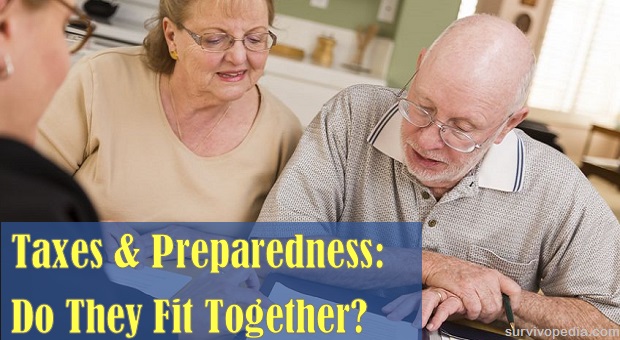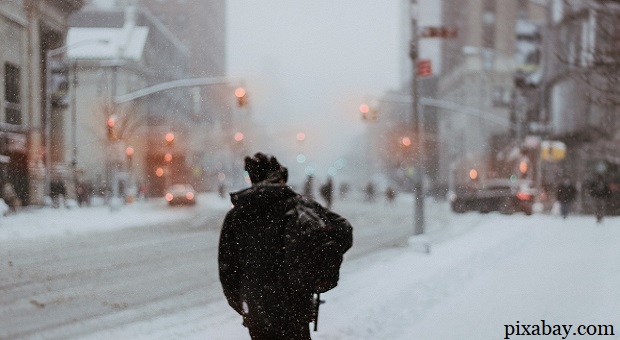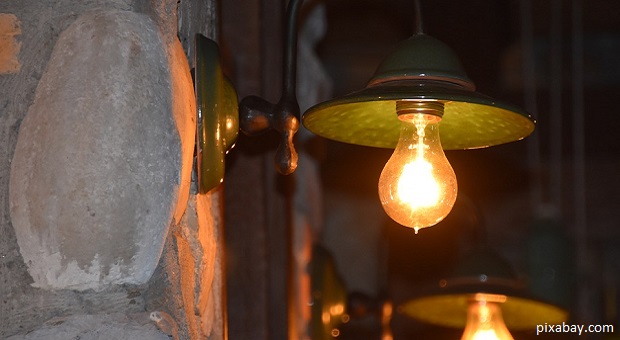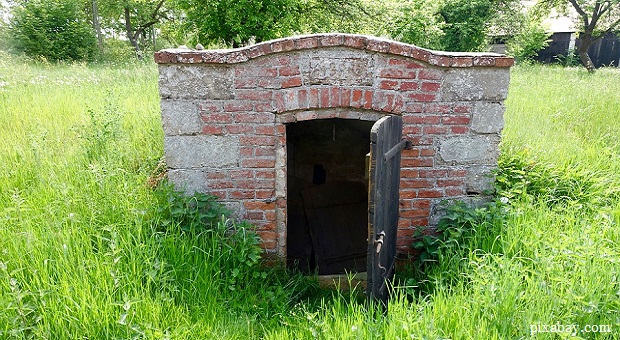A reader recently sent in an interesting question; she ask: “For people who have been able to pay off their home mortgages, what do you recommend they do regarding real estate taxes? I’ve considered paying taxes in advance. What are your thoughts?”
First of all, I’d like to congratulate this reader on paying off their mortgage. Many preppers are at risk of losing their homes in the event of a major catastrophe, such as a financial collapse, simply because they won’t have the money to pay off their home.
I’m working hard to pay off my home early, and I recommend the same to everyone else. Even a personal disaster, such as losing a job or a health problem, can put your home at risk. Preparing your home for a disaster and then losing that home would make anyone very vulnerable.
Now, about the taxes; I have to start by saying that I’m not a fan of paying taxes. I recognize the need to support our government, but I feel that we’ve gotten to the point where our government is so big and spends so much money, that taxes are hurting the economy, not helping it.
There isn’t a government body anywhere that gives you any special credit for paying your taxes early. Many of them are great at penalizing you for paying them late; but they can’t seem to capture the idea of positive reinforcement and motivation.
For that reason, I’m not in favor of paying taxes early. I’d rather have that money in my hands, earning me something, instead of in the government’s hands.
While I like the idea of having the money early, I can’t see any reason to give it to the government early. Instead, I think it makes a lot more sense putting that money into some sort of short-term investment, so that I could get some profit out of it.
Now, I realize that such investments may not seem readily available or all that reliable, but they are if you change your definition of investments. One of the best short-term investments I know is food. That’s right, food.
Let’s say that you have a $2,000 property tax bill that’s due in six months. If you have the money on hand, you could pay your taxes off and gain nothing more than the peace of knowing that you don’t have to worry about it.
Option two is to buy food. Let’s say your food budget is $400 per month. Instead of giving $2,000 to the government, you buy five months worth of normal groceries. It has to be what you would normally buy, or you lose the investment. Don’t run out and buy prime rib and lobster tails if you don’t normally eat prime rib and lobster tails.
While the official inflation rate is about 1 percent per year, food has been inflating at a rate of about 8.5 percent per year. That means that in six months, the food you buy today will be “worth” 4.25% more than it is right now. So, you buy that food and stash away your food budget every month for the next five months, ensuring that you’ll be able to pay the property taxes.
Okay, what you gain by doing that? You just earned $85.00. You probably don’t see that money, because what you really did was save that much on your food. The difference might have been spent on incidentals or simply in buying more food. Either way, that’s money you got to use, rather than the government getting to use it.
One Step Further
Let’s look at it from the viewpoint of a financial collapse. One of the prime effects of any financial collapse is runaway inflation. So, for the sake of argument, let’s say there’s a 20% per year inflation rate. Now, not paying that money is a real advantage, because you’re talking $200 in earnings in six months. But what if you pay it late?
Not paying your taxes on time pretty much always entails some sort of financial penalties. If you don’t pay your property taxes when they’re due, they go up; likewise with your income taxes.
But the amount they go up probably won’t equal the rate of inflation during a financial collapse. So instead of waiting six months to pay those property taxes, let’s say that you wait a year. You will probably be penalized about ten percent for that, but inflation is 20%, so you’re still money ahead.
Actually, you could probably wait two to three years to pay those taxes, without risking losing your home. Bureaucracies tend to move slowly; I don’t care if it’s the IRS or your county tax office. Waiting to pay those taxes could actually be a good financial decision, as it will end up saving you money. But do the math before making that decision and know how long your local county tax office takes to react to people who don’t pay.
One other precaution which is really important in all this; don’t decide to put off paying your taxes, unless you have a definite way of getting your hands on the money, when you need to pay them. Otherwise, you could be putting your home and yourself at risk.
If you don’t have a source of income, but have the money to pay off your taxes, pay them. The security of knowing that they can’t touch your home is well worth having, especially during a financial crisis.
This article has been written by Bill White for Survivopedia.










Pingback:Taxes and Preparedness – Do They Fit Together? | Survivalist Basics | Be Prepared For Anything! | October 27, 2014
|
Edith | October 27, 2014
|
When I tell people I’m paying off the mortgage on my home (and it’ll be paid off by May 2016), I get a lot of unwanted feedback about how it doesn’t make sense since the interest rate is so low.
However, it doesn’t matter how low the interest rate is when it comes to making your payment if you lose all or part of your income and/or have no savings or other resources to pay your mortgage.
I like the security of knowing that I own my home and only have to worry about the property taxes. Of course, paying off any credit card debt is the first thing you should do. Either way, get your finances in order, learn to budget, learn to be frugal and enjoy living a life free of the onerous debt others cannot shake.
Mawihi | October 27, 2014
|
I agree and this is very important. We have equity in our home but not long ago went through a length of time with no income and not much to fall back on. Through Grace, we are getting back on track but some time ago we received a letter from the bank that unless…they were going to begin foreclosure and once started there is “no turning back”. We sought counsel and discovered that once that starts, we would lose ALL our equity! So, the closer you are to paying it off (mortgage) the more you have to lose! Given that, we are working hard to pay ours off soon as we can.
Denise | November 1, 2014
|
My husband and I have paid off our home, also. I like the security that brings but
knowing that property taxes are always due makes me feel enslaved to the gov.
Never really free to live life without being beholden to someone for my bit of earth. Knowing that if we had no source of income that they would take away what we have already paid for and “own”. If I had the flexibility, I would seriously consider moving overseas to a country or island where I could be free of these staggering taxes.
Victor Easley | October 27, 2014
|
I am fortunate to have our home paid off and am completely debt-free, but, believe me, that is not the cure-all for life and happiness. Sure, it helps alleviate stress but it seems that there is never enough money, even having a good profession. There are patio pavers, new oven, new tile, tithes, etc. Never enough. We’ve needed new carpet since we bought our house 4.5 years ago but no funds for it now. So, I set small goals and work towards them but if someone is looking for wholeness in merely owning their home and being debt free —you won’t find it. Completeness is only found in the gospel of Jesus Christ. Period.